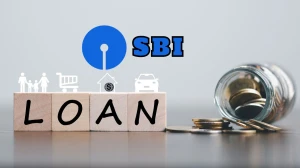
Refinance Mortgage with Bad Credit Score, Can You Refinance With Bad Credit?
Refinancing a mortgage with a bad credit score is feasible through options like contacting current lenders, exploring government-backed programs, and considering co-signers, but it requires careful consideration of potential drawbacks.
by Kowsalya
Updated Dec 01, 2023
On This Page
Refinance Mortgage with a Bad Credit Score
Refinancing a mortgage with a bad credit score is possible through various options. Homeowners can start by contacting their current mortgage company, and exploring government-backed programs like FHA streamline refinance, regular FHA refinance, and FHA cash-out refinance. VA streamline refinance and also a VA cash-out refinance are viable options for those with VA loans, while military borrowers can also consider replacing a conventional or FHA loan with a VA loan or getting more cash out with a VA loan.
Additionally, the USDA Streamlined Assist program and non-QM guidelines may offer alternatives. It's crucial to shop around for lenders specializing in bad credit, check credit reports for accuracy, and be transparent about credit issues.
Understanding the break-even point for closing costs versus monthly savings is essential to determine if refinancing with bad credit makes financial sense. Homeowners should also take proactive steps to improve credit by reducing credit card balances and ensuring timely bill payments to avoid the need for a bad credit refinance.
Can You Refinance With Bad Credit?
Yes, you can refinance with bad credit. Explore options like approaching your current lender, government-backed programs (FHA, VA, USDA), portfolio refinance loans, or finding a co-signer.
Consider potential benefits such as lower payments and savings on interest, but be mindful of drawbacks like closing costs and a temporary impact on your credit score. Improving your credit beforehand is recommended for better refinancing opportunities.
How to Refinance a Mortgage with Bad Credit?
Refinancing a mortgage with bad credit involves several steps to explore different options and potentially improve your financial situation. Here are seven steps to guide you through the process:
Contact Your Current Lender
Start by reaching out to your current mortgage lender or loan servicer. Building on your existing relationship may work in your favor, and they could offer options to refinance despite your bad credit.
Explore FHA Streamline Refinance
If you have an existing FHA loan, consider the FHA streamline refinance program. This option requires no income verification or credit check, making it accessible for those with bad credit. Ensure you have a history of on-time payments.
Consider FHA Rate-and-Term Refinance
For borrowers with bad credit, the FHA rate-and-term refinance allows you to reduce monthly housing costs without a cash-out option. It's essential to use all proceeds to pay your existing mortgage and associated transaction costs.
Investigate VA Streamline Refinance or VA Cash-Out Refinance
If you're a veteran with a VA loan, explore the Interest Rate Reduction Refinance Loan (IRRRL) for a streamlined process. Additionally, the VA cash-out refinance allows you to tap into your home equity even with bad credit.
Utilize the USDA Streamlined Assist Program
The USDA Streamlined Assist program is an option for those with a USDA loan. It doesn't require a credit check, home appraisal, or consideration of debt-to-income ratio, making it accessible for bad credit borrowers.
Consider a Portfolio Refinance Loan
Portfolio loans, offered by banks and mortgage brokers, can be more flexible in accommodating borrowers with bad credit. Consider working with a mortgage broker or full-service lender to explore portfolio loan options. Quick loans for bad credit provide alternative solutions, offering timely financial assistance for individuals with credit challenges.
Find a Co-Signer
If bad credit is a significant hurdle, consider finding a co-signer with a strong credit history. A co-signer provides additional security to the lender, but it's crucial to communicate clearly and have legal arrangements in place.
Read More >> Refinance Car Loan with Bad Credit
What is Bad Credit for a Refinance?
Bad credit for a refinance typically refers to a credit score that falls below the threshold required by lenders for favorable terms. For conventional loans, a credit score below 620 is often considered bad, while FHA loans may accommodate scores as low as 500. Additionally, recent bankruptcies or foreclosures can contribute to a negative credit history, impacting the ability to refinance. Lenders may impose waiting periods after such events.
Understanding when to refinance a mortgage is crucial, as the extent of bad credit and its impact on refinancing options vary among different loan programs, emphasizing the importance of exploring specialized programs and understanding their specific credit score requirements.
MarketsHost, your trusted online marketplace for all Mortgage-related things. Whether you're a first-time homebuyer or refinancing, we've got you covered.
How to Improve Your Credit for a Refinance?
Improving your credit for a refinance is essential to increase your chances of securing a favorable interest rate and terms. Here are detailed steps on how to improve your credit for a mortgage refinance:
Check Your Credit Report
- Obtain copies of your credit reports from all three important credit bureaus: Experian, Equifax, and TransUnion.
- Review the reports for errors, inaccuracies, and outdated information.
- Dispute any discrepancies with the credit bureaus to ensure your report is accurate.
Understand Your Credit Score
- Know your current credit score and understand the factors influencing it.
- Different lenders may use various credit scoring models, so be aware of the range of scores accepted for mortgage refinancing.
Reduce Credit Utilization
- Aim to reduce your credit card balances to lower your credit utilization ratio.
- The credit utilization ratio is the percentage of your available credit that you're currently using.
- Pay down credit card balances strategically to bring down this ratio and improve your credit score.
Make On-Time Payments
- Consistently pay all of your bills on time, as payment history contributes significantly to your credit score.
- Set up automatic payments or reminders to avoid missing due dates.
Address Outstanding Debts
- Prioritize paying off outstanding debts, especially high-interest ones.
- Focus on reducing balances on credit cards, personal loans, and other debts that contribute to your overall debt-to-income ratio.
Avoid Opening New Credit Accounts
- Opening new credit accounts can temporarily lower your credit score.
- Avoid unnecessary credit inquiries, such as applying for new credit cards or loans, during the refinancing process.
Work with Creditors for Settlements
- If you have outstanding collections or delinquent accounts, consider negotiating settlements with creditors.
- Settling debts may have a positive impact on your credit score, although it might not remove the entire negative history.
Establish a Positive Credit Mix
- A diverse credit mix, including credit cards, installment loans, and retail accounts, can positively impact your credit score.
- However, only open new credit accounts when necessary and manageable.
Become an Authorized User
- Ask a family member or friend with good credit if you can be added as an authorized user on one of their credit accounts.
- This can potentially improve your credit score by including a positive payment history on your credit report.
Be Patient and Consistent
- Improving your credit score takes time, so be patient and stay consistent with positive financial habits.
- Regularly monitor your credit reports and scores to track your progress.
Consult with a Credit Counselor
- If you're struggling to manage your debts, consider seeking advice from a credit counseling agency.
- A credit counselor can provide guidance on debt management and help you create a plan to improve your credit.
How to Avoid a Bad Credit Refinance?
Avoiding a bad credit refinance is crucial for homeowners seeking financial stability. Here are essential tips to steer clear of a potentially unfavorable refinancing situation:
Reduce Credit Card Balances
To maintain optimal credit scores, limit credit card balances to no more than 10% of your total available credit. High balances can negatively impact your creditworthiness.
Timely Bill Payments
Consistently pay your bills on time. Late payments can significantly set back your credit score, making it challenging to secure favorable refinance terms.
Avoid Authorized User Cards and Cosigned Debt
Steer clear of authorized user cards and cosigned debt, as these arrangements make you responsible for others' credit actions, potentially harming your creditworthiness.
Limit New Credit Applications
Each new credit application can slightly dent your credit score. Avoid unnecessary credit inquiries, especially during the refinancing process, to maintain the best possible credit standing.
Refinance Mortgage With Bad Credit Score - FAQs
1. Can I refinance my mortgage with a bad credit score?
Yes, it is possible to refinance your mortgage with a bad credit score.
2. How does a bad credit score impact my refinancing options?
A bad credit score may limit your refinancing options and lead to higher interest rates or less favorable terms.
3. Can I get a cash-out to refinance with bad credit?
It is still possible to get a cash-out to refinance with bad credit, but the terms may not be as favorable as those offered to borrowers with higher credit scores.
4. Can I refinance if I've recently gone through bankruptcy?
FHA and VA loans have specific waiting periods after bankruptcy, but some non-QM lenders may offer refinancing options with a shorter waiting period.
5. What are some alternative options for refinancing with bad credit?
If traditional lenders are not willing to offer favorable terms, you can explore alternatives such as FHA streamline refinance, VA interest rate reduction refinance, or seek assistance from specialized lenders who cater to borrowers with bad credit.




